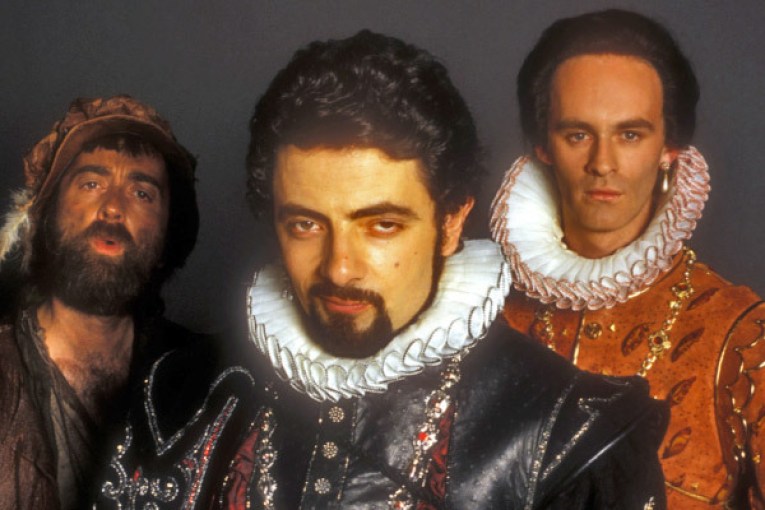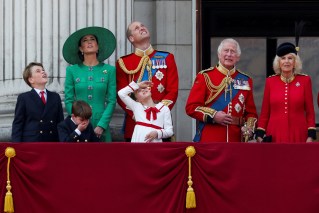‘The warrior poet’: Sinead O’Connor’s private battles amid global outpouring of grief

After the tragic news of Sinead O’Connor’s death was announced by Irish public broadcaster RTÉ, among the hundreds of tributes and messages hitting social media was one from US actor Jamie Lee Curtis.
The respected Hollywood veteran was among those who touched on the controversial singer’s heartbreaking private battles, including suffering abuse as a child and the death by suicide of the third of her four children, Shane.
Known as much for her outspoken views on religion, sex, feminism and war as for her music, she will be remembered for ripping up a photo of Pope John Paul II during a 1992 television appearance on Saturday Night Live, declaring, “Fight the real enemy”.
“She was a victim of child abuse and a huge change agent for unfair and unjust draconian laws that she helped change in Ireland,” Curtis posted on Instagram.
“She ripped up a photograph that was on her mother’s wall because of the hypocrisy of the abusive life she was raised in under the banner of the church.
“She was a warrior. She was a rebel.”
O’Connor, who died on July 26 aged 56, crashed onto the global music scene in 1990 with her mesmerising version of Nothing Compares 2 U, originally written by Prince.
The music video, which accompanied the song, has gone down in history as being equally mesmerising, as O’Connor with her stunning-coloured wide eyes, shaved head and tears, channelled emotions she had wrestled with for decades.
“Everyone thinks it’s about some bloke … but if you notice where I start crying … I made an emotional connection, which I was not expecting – it didn’t hit me when I was recording the song,” she eventually revealed in a Q&A in the 2013 publication, I Want My MTV: The Uncensored Story of the Music Video.
“It only kicked in when I was being filmed. So I was sitting there, thinking about me mother, and trying hard not to bawl my eyes out … the video was massive, and it changed my career.”
“The tears shed in the iconic video weren’t just for show … the ethereal voice and wounded eyes masked a past marred by child abuse, incarcerations, and tragedy, and those inner demons followed her through the gilded door of fame and haunt her to this day,” observed People in 2017.
As of July 27, the circumstances surrounding the death of O’Connor remain unclear.
“It is with great sadness that we announce the passing of our beloved Sinead. Her family and friends are devastated and have requested privacy at this very difficult time,” RTE quoted a statement from the singer’s family.
She was born Sinéad Marie Bernadette O’Connor on December 8 in 1966 into a large Roman Catholic family in the affluent Dublin suburb of Glenageary.
‘A torture chamber’
In 2012, People reported that when her parents’ tumultuous relationship ended in an acrimonious divorce, she went to live with her mother at the age of eight, where she was abused.
“It was physical violence, perpetrated particularly in a sexual manner.
“She wasn’t trying to have sex with me, but she spent a good time trying to destroy my reproductive system. It was psychological, too. It was a torture chamber, really. But I forgive my mother; she just wasn’t well.”
She ran away aged 13, was truant from school and stole shoes and make-up, which lead to her being sent away.
Irish President Michael D Higgins elaborated on her upbringing in a tribute statement after her death.
“She was sent to a reform school for girls but left in her mid-teens to focus on a career in music, after co-writing a song for Irish band In Tua Nua. The band’s drummer had discovered her singing at his sister’s wedding.”
She moved to London in 1985 and after scrapping the initial tapes for her debut LP on the grounds that the production was too Celtic, she took the producer’s seat and began re-recording the album, called The Lion and the Cobra, which would earn her a Grammy Award nomination.
However, it was track six on the follow-up album, I Do Not Want What I Haven’t Got, that catapulted O’Connor to global fame.
The record earned O’Connor four more Grammy nominations – and a win for best alternative music performance – but she shunned the ceremony in protest at the “false and destructive materialistic values” of the music industry.
She released two more albums in the early 1990s and several more in the 2000s while publicly sharing her struggles with mental illness.
O’Connor converted to Islam in 2018 and changed her name to Shuhada Sadaqat, though continued to perform under the name Sinead O’Connor.
She struggled with her mental health throughout her life, revealing to Oprah Winfrey on her show in 2007 that her erratic behaviour stemmed from a terror-filled childhood and an undiagnosed bipolar disorder.
She also suffered depression in her 20s, complex post-traumatic stress disorder (CPTSD) and suicidal thoughts, according to Hollywood Life.
Tweet from @tgalloway72
On January 8 last year, O’Connor announced Shane, 17, had died after he had gone missing earlier in the week in a series of posts on Twitter.
“This is a message for my son, Shane. Shane, it’s not funny any more all this going missing,” she posted in the days before his death.
“You are scaring the crap out of me. Could you please do the right thing and present yourself at a Gardai [police] station. If you are with Shane please call the Gardai for his safety.”
“Shane, your life is precious,” O’Connor wrote in a follow-up message.
“God didn’t chisel that beautiful smile on your beautiful face for nothing. My world would collapse without you. You are my heart. Please don’t stop it from beating.”
Tributes continued to flow in the hours after O’Connor’s death.
UFC champion Conor McGregor was friends with O’Connor, who performed at a 2015 featherweight title fight: “The world has lost an artist with the voice of an angel. Ireland has lost an iconic voice and one of our absolute finest, by a long shot.
“Sinead you are home with your son, I am sure.”
Tweet from @haaohaoo
‘Courageous, outspoken and controversial’
Brash and direct, she was seen as a direct challenge to popular culture’s long-prevailing notions of femininity and sexuality.
Indeed, O’Connor irrevocably changed the image of women in music.
The 1980s rock band UB40 summed up her life: “Very sad to hear of the passing of singer and activist Sinead O’Connor at only 56. So often troubled, always courageous, outspoken and controversial.”
At one stage, she wanted to reach out to the next generation, penning an open letter to Miley Cyrus about the dangers of the music industry, sparked by Cyrus’s claim she took inspiration for her Wrecking Ball video from the Nothing Compares video.
“I am extremely concerned for you that those around you have led you to believe, or encouraged you in your own belief, that it is in any way ‘cool’ to be naked and licking sledgehammers in your videos.
“It is in fact the case that you will obscure your talent by allowing yourself to be pimped, whether it’s the music business or yourself doing the pimping,” she wrote, with the full 2013 letter printed in The Guardian.
In 2020, in an interview with Spin magazine, she said: “American female artists, they look like Disney characters – they’ve got no pants on.”
“Nothing from the waist down, they’re all wearing leotards. They look like Donald-f–king-Duck. And then they’re trying to sexualise their audience. J.Lo, Madonna … they totally look like Donald Duck.”
Her criticisms of Catholicism were especially controversial in parts of Ireland but also a brave representation of a shift that was taking shape in society away from the church, whose deep influence began to collapse later that decade over a string of clerical child sex abuse scandals.

The documentary, Nothing Compares, is about Sinead O’Connor’s rise to fame. Photo: Sky
On July 12, O’Connor posted on her official Facebook account that she had recently moved back to London, was finishing an album, and intended to tour towards the end of 2024 and early 2025.
She had recently worked with composer Bear McCreary to record a new theme for historical TV drama Outlander.
“She was the warrior poet I expected her to be,” he wrote overnight.
In the same Facebook post, O’Connor also reminded fans that the Showtime documentary made by Belfast-born filmmaker Kathryn Ferguson, Nothing Compares, was set to broadcast exclusively on Sky Documentaries and NOW from July 29.
But it was her comments from her 2021 memoir, Rememberings, which will continue to resonate.
“Everyone wants a pop star, see?” O’Connor wrote.
“But I am a protest singer. I just had stuff to get off my chest. I had no desire for fame.”
Lifeline 13 11 14
beyondblue 1300 22 4636








